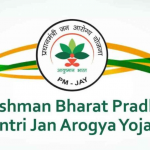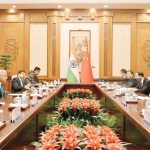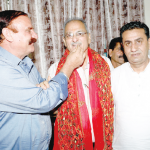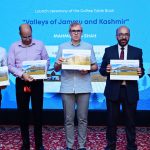Jammu and Kashmir is entering a new era of democracy after the successful completion of the Assembly Elections. The one decade long wait has paid dividends and enabled the masses to choose their elected government. Though the mandate given by the masses in the assembly Election has overtones of the regional aspirations, it augurs well for the overall well-being of the Union Territory (UT). This time the rules of the government formation after the neutralisation of Article 370 and 35 A are considerably different as the erstwhile princely state has been transformed into UT. Jammu and Kashmir is entering a new era of governance as a UT with the conviction of the ruling party that it will strive hard for the restoration of statehood. Fingers are crossed as people have divergent aspirations after the region centric mandate in both Jammu and Kashmir. Surely, there will be tussle in the Assembly in terms of the political standpoints and ideological moorings. There lies the challenge for the new Chief Minister and his cabinet to balance the decision making so that both the regions are taken into confidence for overall development. Only time will tell, what will be the rate of success in terms of governance in the state? Omar Abdullah will be leading Jammu and Kashmir as Chief Minister for the second time. This indeed gives him an advantage as he has the internalisation of the issues being faced by the masses. He has witnessed the regional polarisation during the Shree Amarnath Ji Agitation that brought Jammu and Kashmir to standstill. His political stand at that time in the Parliament is in the public domain. Those were the times when Jammu and Kashmir went through the terrible regional conflict. It led to an impact on the political discourse of the erstwhile princely state. It is pertinent to mention that the undercurrents of that regional divide are quite evident in the present mandate given to the parties. A small negligence can bring the UT back to desperation and disturbance. That cannot be afforded at this stage when a relative peace is present on ground. There is a need to convert this semblance of peace into harmony and create new avenues for the conflict ridden people of Jammu and Kashmir. It must be kept in mind that a spark ignited burns the house. Jammu and Kashmir may be giving an impression of lull but that does not mean fault lines have been ironed out. There are dormant undercurrents that need an opportunity to destroy the peace. That has to be kept in mind and needs to address the fault lines and take all sections on board. Omar Abdullah has age on his side and this allows him to set new benchmarks to bring Jammu and Kashmir on the path of inclusiveness and prosperity. It is indeed a huge task but not impossible. Moreover, he is the representative of a political legacy that has ruled Jammu and Kashmir right from the dawn of independence. Right from his grandfather Sher-e-Kashmir, Sheikh Mohammad Abdullah who led the people from the front and galvanised the people for securing their rights to his father, Dr. Farooq Abdullah who was known for his unconventional style of functioning endeared him to the masses for his carefree public friendly personality. Now the things are in order and the die has been cast. The Rising Kashmir wishes Omar Abdullah and his cabinet a successful tenure to restore the glory of Jammu and Kashmir and lead the UT towards a new dawn of inclusive prosperity, creating an era of harmony and bliss.
J & K Welcomes Omar Abdullah With a New Hope

Sign Up For Daily Newsletter
Be keep up! Get the latest breaking news delivered straight to your inbox.
By signing up, you agree to our Terms of Use and acknowledge the data practices in our Privacy Policy. You may unsubscribe at any time.
Leave a Comment
Leave a Comment







